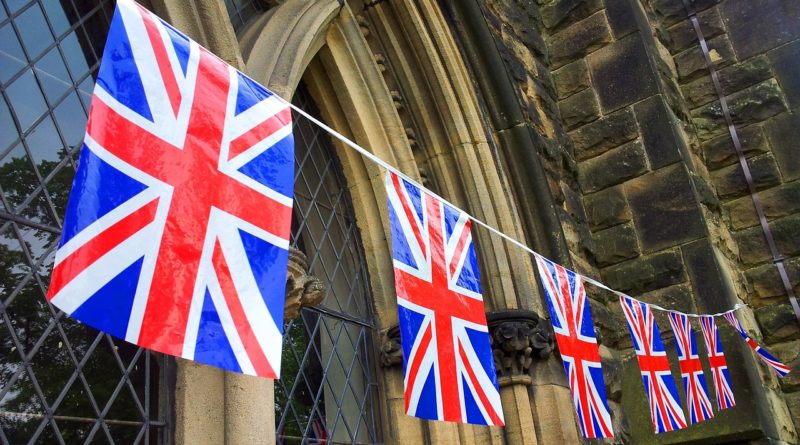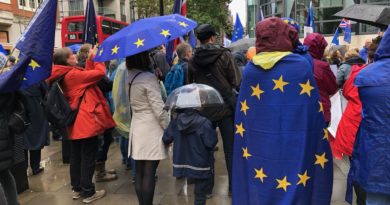House of Lords committee slams UK citizenship procedure
The House of Lords select committee on citizenship and civic engagement has criticised the procedure to obtain UK citizenship, saying that those who wish to naturalise British face “particularly steep” barriers.
The remarks were made in the report The ties that bind: citizenship and civic engagement in the 21st century, which recommends reforms in a number of areas related to citizenship, not only naturalisation. “We have tried to identify the barriers which are preventing people from feeling part of our society or contributing to it, together with the steps which must be taken to remove those barriers,” wrote peers. Their conclusions are based on a consultation that involved 250 written submissions and oral contributions from 58 witnesses.
Naturalisation
One of the most critical parts of the report concerns the conditions required to become British citizens. “They include a ‘good character’ requirement which is undefined, a knowledge test based on materials which are absurd, and a cost which is steeper than it should or need be,” says the paper.
Peers note that not being considered of “good character” has become the main reason for refusal of citizenship (43% of rejections in 2015 and 44% in 2016). But there is no legal definition of what “good character” means, so officials have an “almost unlimited discretion” to refuse applications on this basis, peers argue.
As regards the “Life in the UK” test, which aims to verify knowledge of real life in the country, the committee says that it looks like “a barrier to acquiring citizenship rather than a means of creating better citizens”. The book used to prepare the exam contains errors, inconsistencies and trivia “which few British citizens would know, and few would think it important for aspiring British citizens to know,” peers say. On the other hand, they note, the book does not include information about the NHS, educational qualifications, subjects taught in schools, how to report a crime or contact an ambulance, and other aspects of everyday life all citizens should be aware of.
Another critical part of the naturalization process is its cost. In 2017, the application fee paid to the Home Office increased by 30%, from 925 to 1,202 GBP. On top of this, there are 80 GBP for the citizenship ceremony, which are paid to the local authority. And there are the fees for permanent residence or indefinite leave to remain, which are required prior to citizenship application.
The report quotes immigration minister Brandon Lewis saying that the fees exceed the administrative costs and are broadly used for “running the system”, including for border security. The deputy Mayor of London told the committee that half of the 1,202 GBP fee was profit. High costs also apply for citizenship by registration for children born in the UK. Peers believe such practice is “inequitable” and the fee should be much closer to the administrative costs of the process.
The report also calls for a review of the English language test. “It cannot be right that a person can complete mandatory education in the UK but still be deemed to not speak English to the level required for naturalization,” say peers. Their conclusion is that the government should set up an advisory group and review the entire naturalisation process.
Education and participation
The report, however, does not only focus on naturalisation, but examines participation and active citizenship for the entire British society. It says that over the years citizenship education has been neglected and should now be encouraged from primary school to the end of secondary education.
Peers are especially concerned for the low voter turnout in general elections, especially among the socially disadvantaged and the young. From 1922 to 1997, participation in general elections was above 71%. It then fell to 59% in 2001 and reached 69% in 2017 (the EU average is 66%). They suggest to plan for voter registration to take place when enrolling for universities or higher education. Only when recommendations on citizenship education will be implemented, lowering the voting age to 16 should be considered, they say.
Peers also recommend to review the values that define British citizenship. At present the Fundamental British Values (FBV) are “democracy, the rule of law, individual liberty and mutual respect and tolerance of those with different faiths and beliefs”. But tolerance does not mean acceptance so the committee advises to consider instead Shared Values of British Citizenship defined as “democracy, the rule of law, individual liberty, and respect for the inherent worth and autonomy of every person.”
The report does not make any reference to EU citizenship, which is automatically acquired as citizens of a EU member state and will be lost by Brits once the country leaves the European Union.
Claudia Delpero © all rights reserved.
Photo via Pixabay.






